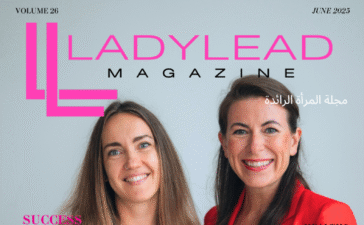Interview with Monica Mathijs, Emotional Intelligence Coach & Founder of Monica Mahi Consulting

Tell us about yourself
I am a Big 4 management consultant and investment banker transformation agent with over 20 years of experience in organizational transformation. Realizing my passion for helping managers and leaders, I became an accredited ICF coach, trainer, meditation teacher, and GENOS EI practitioner. These certifications have equipped me to be an effective emotional intelligence and leadership coach, allowing me to start my own practice, Monica Mahi Consulting, in addition to my corporate job.
At Monica Mahi Consulting, I guide managers, leaders and women from diverse backgrounds to be emotionally aware and lead a life with joy and balance. This dual role allows me to combine my extensive corporate experience with a personalized approach to coaching.
To further this mission, I have structured the EMPATHIC-R MODEL for organizations and leaders. This model aims to create a mindful and aware work environment, promoting happiness and engagement. By driving self-awareness, compassion, and improved business performance, the EMPATHIC-R MODEL helps leaders foster a positive and productive workplace culture.
What motivated you to choose this as a career?
Choosing a career in corporate mindfulness consulting stemmed from my desire to integrate corporate skills with mindfulness practices. My aim is to empower leaders with tools to manage stress effectively, enhancing their own well-being and that of their teams.
In environments where leaders lack emotional awareness, the work environment can deteriorate. This can lead to reduced morale, higher turnover, and decreased productivity. Improved emotional intelligence and mindfulness among leaders foster empathy, resilience, and better decision-making, crucial for maintaining a healthy organizational culture. Additionally, this integration is increasingly crucial as Gen Z enters the workforce, bringing new perspectives and expectations.
How to create an Emotionally Intelligent Workplace Culture
To create an emotionally intelligent workplace culture, leadership must champion EI, setting the tone and consistently applying its principles throughout the organization. Encourage self-awareness, empathy, and understanding through active listening and thoughtful questioning among employees and leaders.
Key Principles for Management to implement:
- Self-awareness: Foster self-reflection to understand emotions, strengths, and growth areas.
- Awareness of Others: Promote empathy through active listening and insightful questions.
- Empathy: Cultivate a culture valuing empathy to foster understanding and connection.
- Self-regulation: Teach techniques like mindfulness to manage emotions effectively.
- Authentic Leadership: Align actions with words to build trust and authenticity.
How can leaders measure and assess Emotional Intelligence?
There are some great EQ assessment tools on the market. It is worth undertaking an assessment to understand one’s position on the scale and then plan how to enhance their skills accordingly. Additionally, by asking for feedback from team members, peers, and management, individuals can benefit from insights into their strengths and areas needing improvement.
What are some tips that you can offer to women leaders to maintain emotional intelligence?
Recognize you don’t have to do it all: Understand that it’s okay not to be a superwoman all the time. Delegate tasks and responsibilities to others when needed.
Ask for help and support: Don’t hesitate to seek assistance and empower those around you. Delegation and collaboration can strengthen teamwork and achieve better outcomes.
Accept and express emotions: Acknowledge your emotions as natural and express them in appropriate settings. Engage in one-on-one discussions for sensitive topics and use non-violent communication to convey feelings and needs constructively.
Find your tribe: Surround yourself with supportive individuals who can serve as a community, offering encouragement, perspective, and comfort during challenging times.
Seek professional support: When facing overwhelming challenges, consider seeking guidance from a qualified professional recognized by a reputable professional body.
These tips can help women leaders nurture their emotional intelligence, maintain resilience, and foster a positive and supportive work environment.
What are your plans to help and encourage women to be emotionally independent?
My plans to help and encourage women to achieve emotional independence include:
- Providing a safe space for women to share, express themselves, and learn from each other.
- Creating a community of professional women where they can support and learn from one another, finding their tribe.
- Coaching women on their goals and life desires, offering a platform for them to share, express, and focus on themselves in a nurturing environment.
- Establishing women pods designed to build skills in emotional intelligence and empower women to navigate life with heightened self-awareness and confidence.
TAGGED :
INTERVIEW
CONSULTING
DUBAI
MONICA MATHIJS








